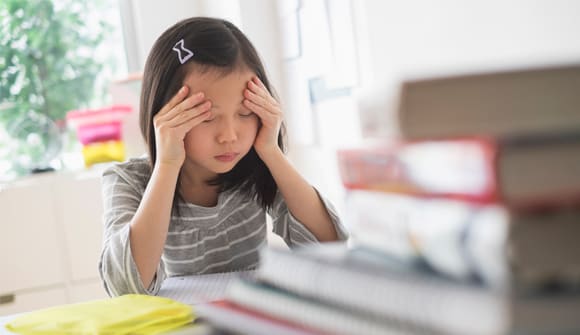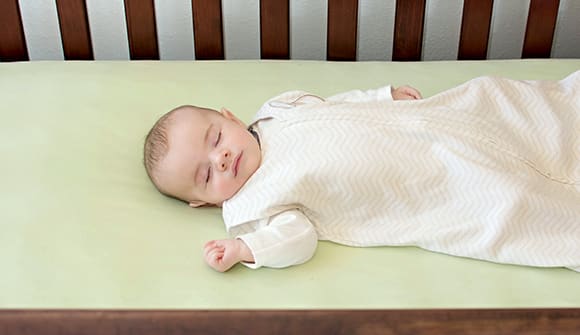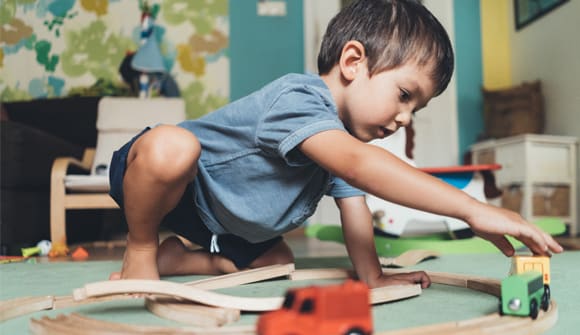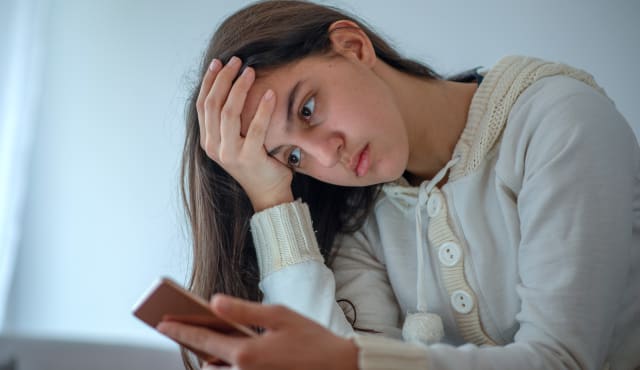Can kids have migraines?
The disabling pain affects millions of children and teens.
Article Date:

The word "migraine" might not come to mind when you're talking about children's headaches, but unfortunately, the debilitating condition can happen in our younger population.
Adam Rappoport, MD, a pediatric neurologist with Wolfson Children's Hospital and Nemours Children's Health, Jacksonville, said, "Headaches are the single most common problem we evaluate during office visits. It's rare for us to go a full day without seeing a child who has them. Most often, headaches are brought on by stress or anxiety, diet or lack of sleep. For some, migraines may be the diagnosis."
Pediatric migraines
Migraines are intense headaches that cause severe pain, throbbing, pounding or pulsating, usually on one side of the head. In adults, they may lead to visual disturbances (auras or decreased peripheral vision) and often cause nausea, vomiting and sensitivity to light and sound. Migraines can last anywhere from four hours to two days.
According to the National Headache Foundation, up to 20% of children ages 5 to 17 in the United States (10.3 million) are prone to headaches. Approximately 15% of these kids experience tension-type headaches.
Most children with migraines inherit them, and 5% of children who experience chronic headaches will be diagnosed with the condition. Children as young as 4 years old can have migraines. They’re slightly more common in boys before puberty but twice as common in girls after puberty due to hormonal changes.
Is it a migraine?
Dr. Rappoport said he always starts with a conversation about the child's history of headaches and a physical exam.
The discussion will center on identifying (or ruling out) possible secondary causes of headaches, gathering information about family history, and pinpointing causes of stress or anxiety, diet or sleep problems.
Children's migraines may have slightly different signs than adults. Head pain may be present but not as severe as other symptoms, such as unexplained nausea or vomiting, abdominal pain or dizziness.
Warning signs of an impending migraine may include:
- Loss of appetite
- Irritability
- Yawning
- Food cravings
- Lethargy
- Social/emotional withdrawal
- Mood swings
- Sensitivity to light, touch, smell and sound
- Sleepwalking or talking and/or night terrors may occur
Migraine relief and treatment
Treatment for childhood migraines can vary depending on the child's age and the frequency and severity of the episodes. The first step is to try to avoid triggers.
"For treatment, the three areas we like to address are lifestyle, vitamins and supplements, and medicines," said Dr. Rappoport. "First and foremost, we look at the adjustable changes, like eating healthy, limiting caffeine, getting enough sleep, and decreasing stress. These changes may help prevent the onset of migraines."
For vitamins and supplements, "Magnesium, CoQ10 and riboflavin, which is a B vitamin, can be used daily to contribute to prevention and relief," he said. Parents should consult their child’s pediatrician before starting any supplements.
Over-the-counter pain relievers can help ease discomfort and relieve nausea and vomiting. In some cases, prescription medications may be needed for more painful or long-lasting migraines.
When to see a doctor
So, if your child has migraines, will he or she suffer from them for life?
"Unfortunately, we don't have a way to predict who will have migraines or for how long. For some people, migraines disappear when they’re 18 or 19. I tell patients that if we start a medicine, they likely won't be on it for the rest of their lives. We work with them on a medical plan."
If your child is experiencing headaches, Dr. Rappoport recommended a visit to the pediatrician, who can then refer the child to a neurologist if necessary.
"Our job is to look at the history and symptoms and then work with the family to figure out how to manage the headaches best."
Is your child dealing with chronic headaches?
The pediatric neurology team with Wolfson Children's Stys Neuroscience Institute and Nemours Children's Health, Jacksonville, provide expert care for a wide range of neurological conditions, including chronic headaches. To learn more, call 904.697.3600.
Source: National Headache Foundation



